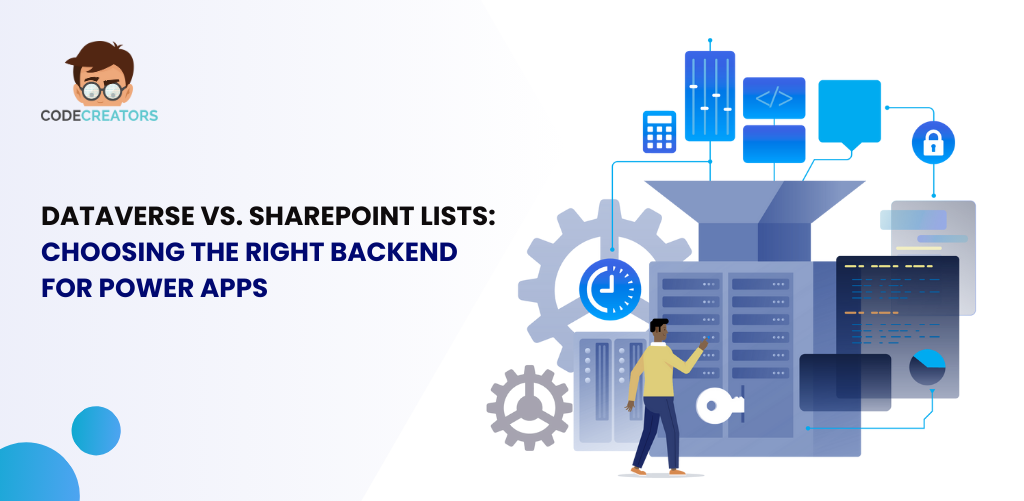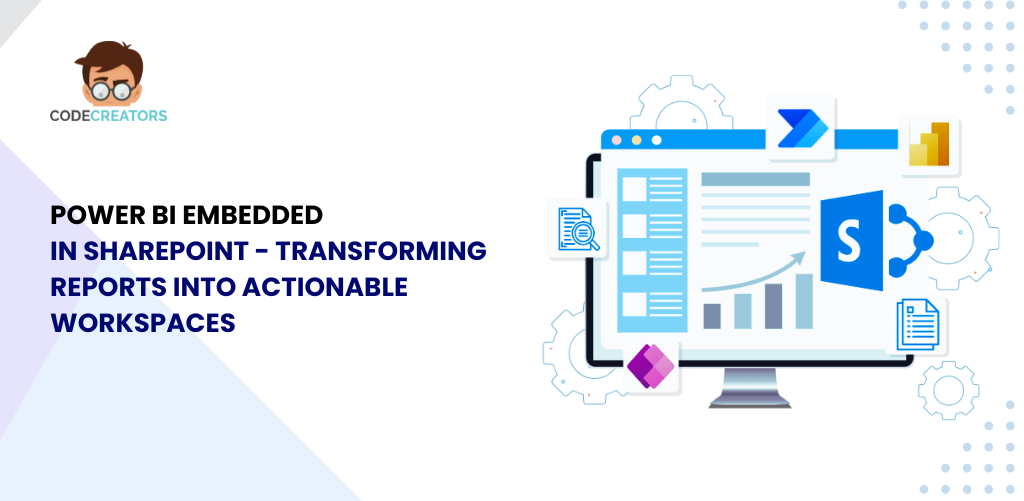Disadvantages and Advantages of Power BI

Modern businesses need advanced software tools to process data and present useful information. Microsoft’s Power BI ranks as one of the top tools for business analytics through its ability to convert raw data into easy-to-read dashboards and reports. Power BI helps organizations succeed by letting them use easy tools to view data and make smart business choices. This blog sheds light on the disadvantages and advantages of Power BI, helping you make an informed decision.
Advantages of Power BI
1. User-Friendly Interface
The Power BI system ensures easy access for users who do not have technical backgrounds. Simple pointing and dropping enables users to build dashboard views without programming skills. Teams can begin using the system right away because of its basic user interface structure. Its drag-and-drop functionality allows users to create reports and dashboards without coding knowledge. The intuitive interface reduces the learning curve, enabling teams to adopt it quickly.
2. Rich Data Visualization
Power BI shines with its wide collection of visualization choices. Users can select from multiple chart models to display their information properly. Interactive tools such as drill-throughs and slicers help make data stories more engaging.
3. Integration with Microsoft Ecosystem
Power BI functions as a Microsoft product that works smoothly with tools such as Excel, SharePoint, Teams, and Azure. Users can import data directly from Excel or analyze it using Azure Machine Learning. Integration with Microsoft 365 ensures smooth collaboration and sharing within organizations.
4. Cloud-Based Accessibility
Power BI operates as a cloud system enabling users to view their reports and dashboards through any internet connection. The Power BI mobile app ensures on-the-go access for decision-makers. Frequent updates to the cloud service provide users with new features and improvements without requiring manual upgrades.
5. Cost-Effective Solution
Compared to other business intelligence tools, Power BI is relatively affordable. The Power BI Desktop is free, offering robust capabilities for individual users. Companies can choose between Power BI Pro and Power BI Premium editions to grow their data analysis capabilities.
6. Extensive Data Connectivity
Power BI supports over 100 data connectors, enabling users to pull data from various sources. These include databases like SQL Server, cloud services like Google Analytics, and APIs. With Power Query, users can clean, transform, and combine data effortlessly.
7. Advanced Analytics Capabilities
Power BI empowers users with advanced analytics features. Integration with DAX (Data Analysis Expressions) allows for complex calculations and metrics. Users can explore their data by using AI and machine learning tools for better analytics results.
8. Collaboration and Sharing
Power BI makes it easy to share insights across teams. Users can work together in real-time by publishing their dashboards and reports to the Power BI Service. Integration with Microsoft Teams facilitates discussions around data insights.
9. Scalability for All Business Sizes
Power BI offers features for every business type from new startups to established large companies. It offers flexible pricing models to suit different organizational needs. The scalability of Power BI ensures that it grows alongside business’s data and analytics requirements.
10. Regular Updates and Community Support
Microsoft improves Power BI regularly through updates that result from what its users want. Users looking for Power BI assistance can find tools and teaching materials within the supportive community.
Disadvantages of Power BI
1. Steep Learning Curve for Advanced Features
Basic Power BI features are simple to use while becoming proficient with its advanced capabilities proves difficult. Features like DAX formulas and Power Query transformations require technical expertise. Users may need additional training or experience to fully utilize the platform.
2. Performance Issues with Large Data Sets
Power BI lacks efficiency when handling extensive data volumes with basic subscription levels. Reports may experience slow load times if the data size exceeds system capabilities. Optimization techniques like data modeling are necessary to address performance bottlenecks.
3. Limited Customization for Visuals
Although Power BI offers a wide range of visuals, customization options can be restricted. Users often have to pay for external visual content when they need features beyond PowerPoint’s basic functionality. Advanced customization often requires coding skills or the assistance of professional Power BI consultant.
4. High Dependency on the Cloud
Power BI’s cloud-based delivery model creates problems for organizations with well-established data control systems. Businesses that handle sensitive data face challenges when holding to GDPR and HIPAA compliance standards during cloud service usage. Power BI Report Server enables on-premises use but its features remain modest in comparison to the cloud edition.
5. Limited Offline Capabilities
While Power BI excels in its online functionality, its limited offline capabilities can be a significant drawback for certain users and organizations. Power BI works mainly through an internet connection, so users depend on an active network to view and modify their dashboards and reports.
6. Licensing Complexity
Power BI’s licensing structure, while flexible, can be complex and overwhelming for organizations of varying sizes. Power BI provides multiple pricing tiers such as Power BI Free, Pro, and Premium plans. Having multiple plan choices lets organizations match their requirements but creates a time-consuming selection process.
7. Limited Export Options
Power BI’s export options are somewhat restrictive. While users can export to Excel or PDF, some advanced features like drill-throughs may not be preserved in exported formats. Businesses needing more flexibility in exporting and sharing data may find this a limitation.
8. Data Storage Constraints
The data storage limits on lower-tier plans can be a concern for growing organizations. Power BI Pro users are restricted to 10GB of cloud storage per user. Expanding storage often requires upgrading to more expensive plans.
Conclusion
Through Power BI companies can access powerful data analysis features to visualize and distribute information insights across their organization. Its easy-to-use design plus powerful visualizations help businesses thrive while Microsoft integration makes Power BI an excellent choice for any organization.
Despite the numerous advantages of Power BI, it can occasionally present specific challenges for its users. The tool shows slow performance when working with large amounts of data and faces technical difficulties along with licensing requirements. Only experienced users can handle Power BI effectively. Organizations need complete knowledge of Power BI benefits and difficulties before deciding how to use the tool.
Code Creators specializes in providing tailored Power BI consulting services, helping businesses turn raw data into actionable insights. From creating custom dashboards to optimizing existing setups, our Power BI developer ensures organizations get the most out of their data for smarter decision-making.
As the CTO at Code Creators, I drive technological innovation, spearhead strategic planning, and lead teams to create cutting-edge, customized solutions that empower clients and elevate business performance.





